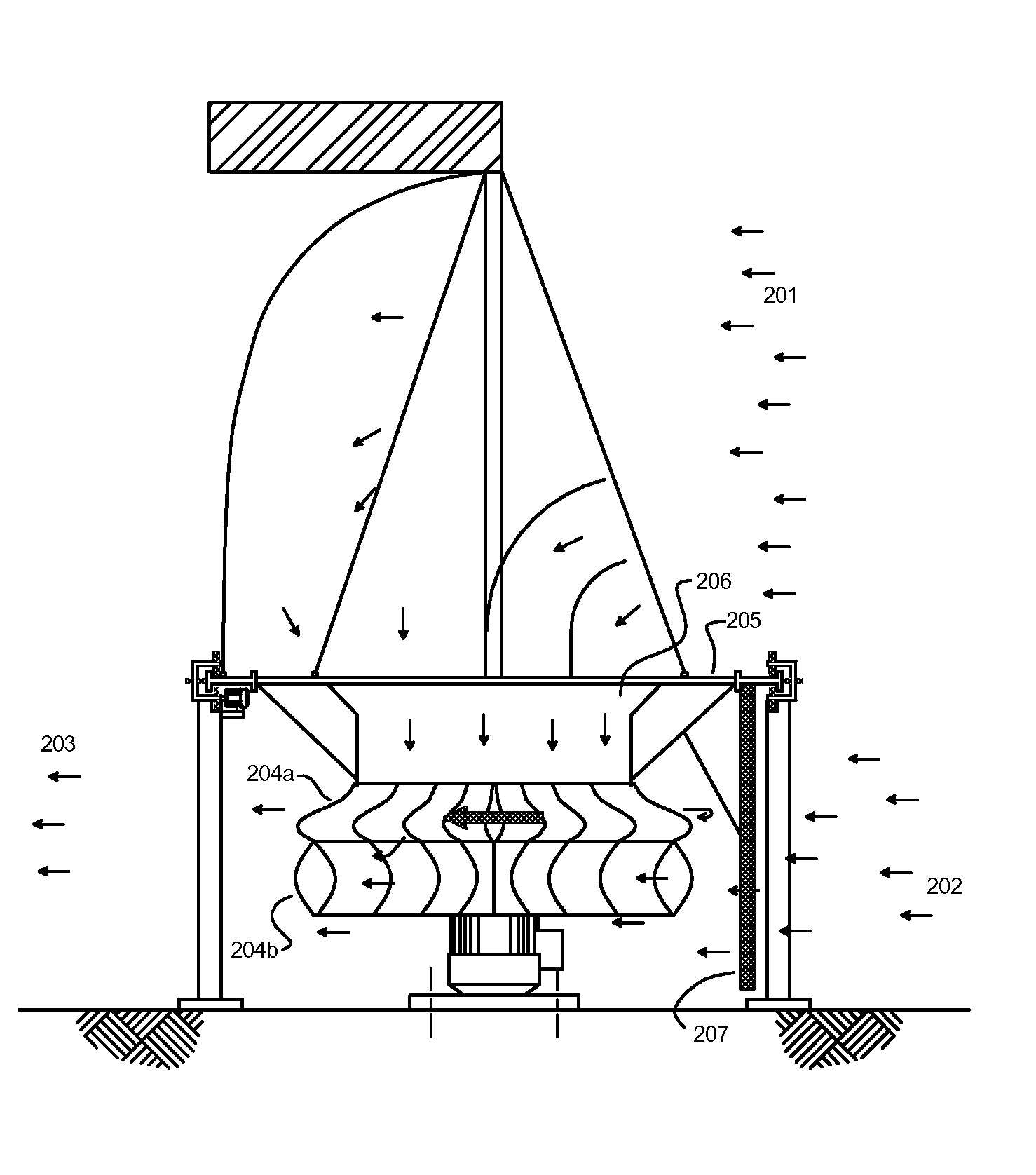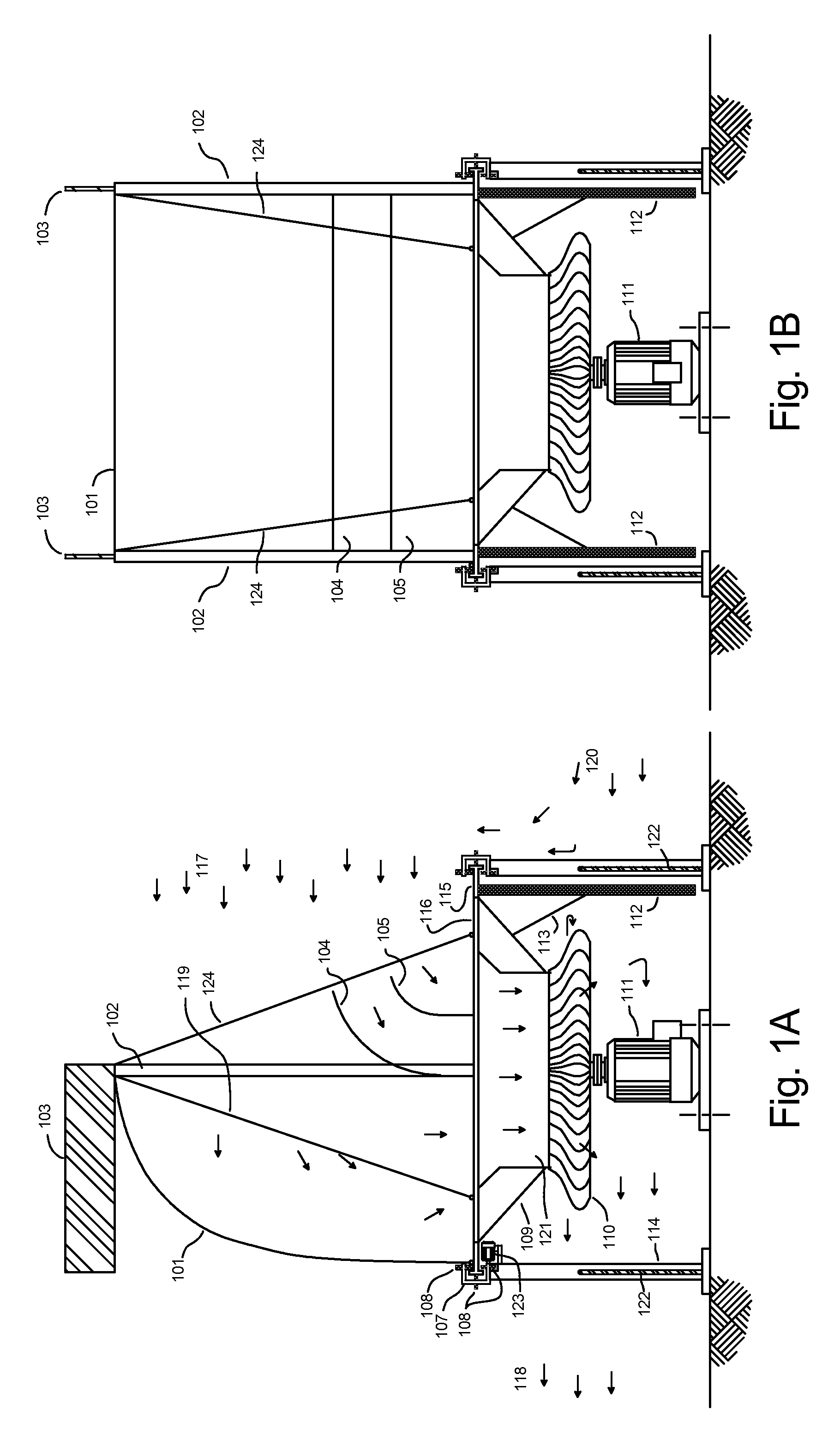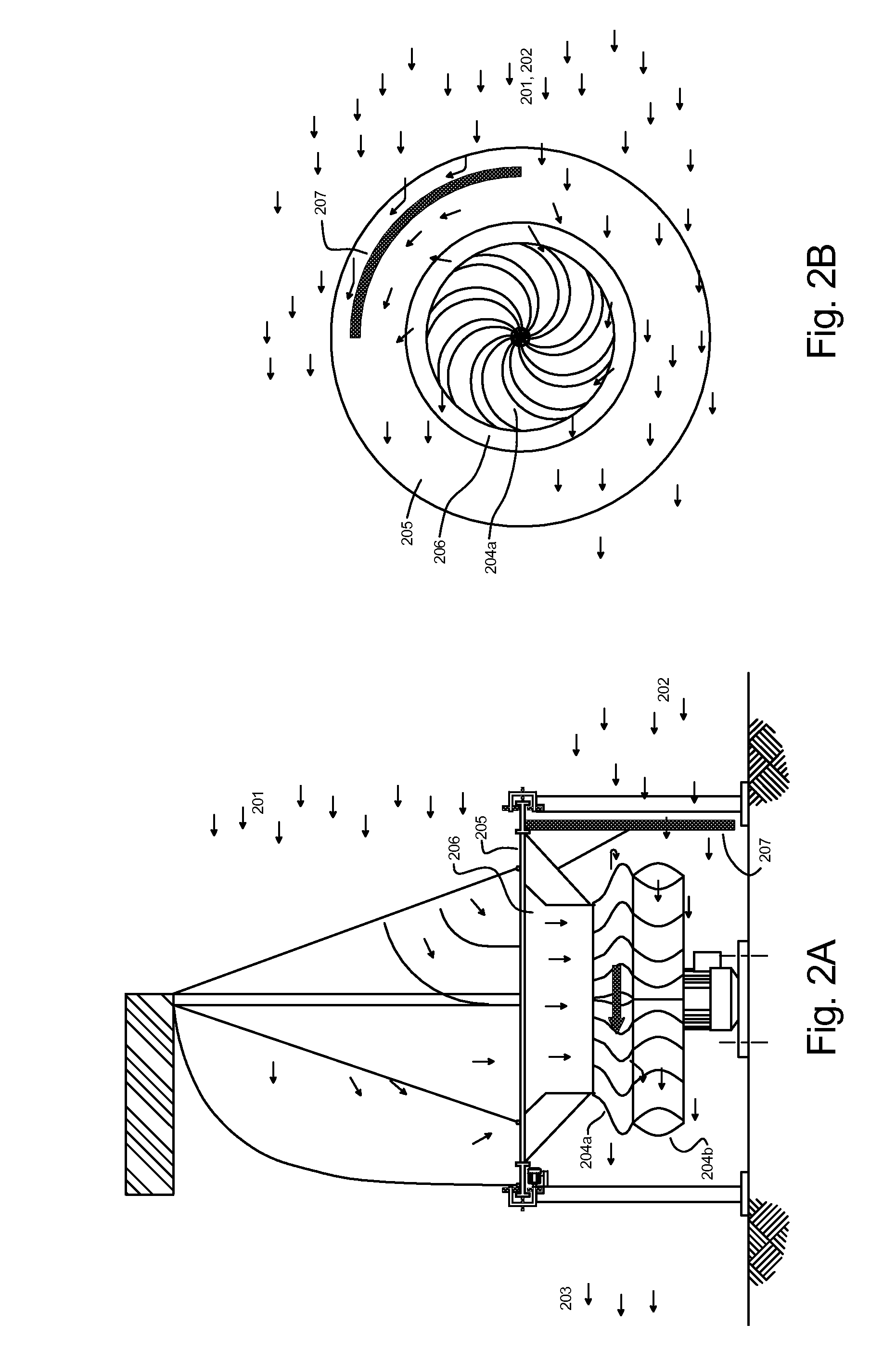Vertical multi-phased wind turbine system
a wind turbine and multi-phase technology, applied in the direction of machines/engines, renewable energy generation, greenhouse gas reduction, etc., can solve the problems of increasing maintenance costs, unsightly nature, and existing wind turbine designs not being as widely adapted as economically feasibl
- Summary
- Abstract
- Description
- Claims
- Application Information
AI Technical Summary
Benefits of technology
Problems solved by technology
Method used
Image
Examples
Embodiment Construction
[0029]The present invention is a system designed to produce electricity at cost effective rates in an environmentally friendly manner at power outputs of approximately 0.10 to 50 kW. It is especially useful in areas where the wind velocity and turbulence increases in places that occur around small hills and tall buildings. It may be employed successfully in the heavily populated downtown sections of major cities. Multiple units can be utilized and may be sized for any given location as the opportunity may arise. Generally speaking, areas with average wind speeds of at least 12 mph are considered to be the most favorable locations for wind power.
[0030]FIGS. 1A-1B show two cross sectional views of a preferred embodiment, general arrangement of the invention. A large air scoop 101 made from a flexible material, such as used in the sailing industry, is hoisted above a vertical axis power generating turbine 110, 111 in order to utilize the upper prevailing wind 117 and direct the maximum...
PUM
 Login to View More
Login to View More Abstract
Description
Claims
Application Information
 Login to View More
Login to View More - R&D
- Intellectual Property
- Life Sciences
- Materials
- Tech Scout
- Unparalleled Data Quality
- Higher Quality Content
- 60% Fewer Hallucinations
Browse by: Latest US Patents, China's latest patents, Technical Efficacy Thesaurus, Application Domain, Technology Topic, Popular Technical Reports.
© 2025 PatSnap. All rights reserved.Legal|Privacy policy|Modern Slavery Act Transparency Statement|Sitemap|About US| Contact US: help@patsnap.com



